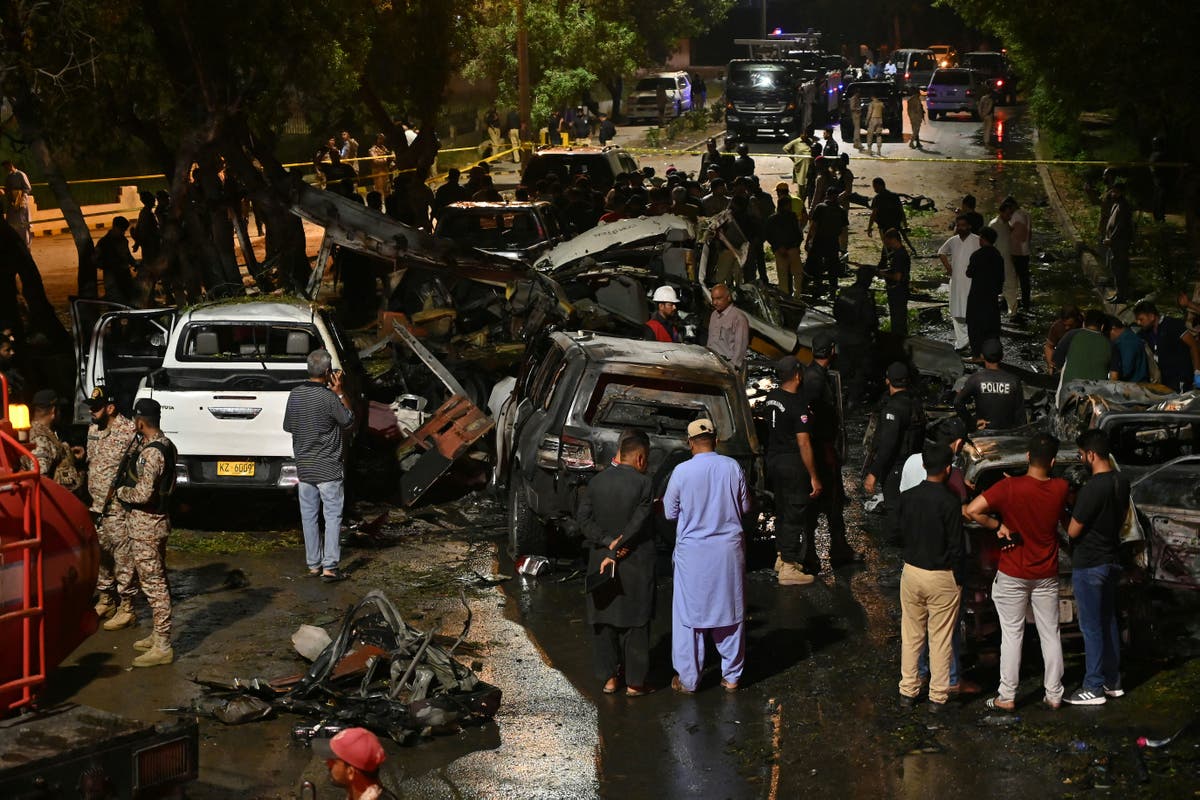As Chinese workers and development projects increasingly come under attack in Pakistan, security experts say separatist militants see the foreign presence as a threat to local resources and their grip on the restive South West.
Two Chinese nationals were killed in a bombing near the international airport of the southern Pakistani city of Karachi on Sunday. The attack, which took place around 11pm outside Pakistan’s Jinnah International Airport, targeted a van of Chinese nationals, just a week before the high-level Shanghai Cooperation Organization (SCO).
Shortly after, separatist militant group, Baloch Liberation Army (BLA), from Pakistan’s troubled southwestern Balochistan province claimed responsibility, stating that it used a vehicle-borne improvised explosive device targeting “a high-level convoy of Chinese engineers and investors”.
China has supported its smaller Asian allies Pakistan and Afghanistan with financial and infrastructure aid for decades and invested significantly in its defence and technology. But its resources are now prime targets for dozens of terrorist groups in the region, experts said.
“Sunday night’s attack is part of a larger pattern of attacks by Baloch separatist militants and Pakistani Taliban factions targeting Chinese nationals and interests in Pakistan,” said security analyst Ihsanullah Tipu Mehsud.

This is one of the biggest terrorist attacks since 2018 targeting Chinese workers in Pakistan, Mr Mehsud told The Independent, including the November 2018 attack on Karachi Chinese Consulate which killed four, July 2021’s Dasu suicide attack which killed nine Chinese nationals, BLA’s attack on the Pakistan Stock Exchange in June 2020, and their suicide attack in April 2023 which killed three Chinese tutors.
This is the second major attack on Chinese nationals. Earlier in March, a suicide car bombing killed five Chinese workers in Pakistan’s Shangla district. The Chinese engineers, who were employed on the site of a hydropower project in northwestern Khyber Pakhtunkhwa province bordering Afghanistan, were on their way to the Dasu Dam In Afghanistan. The December 2022 attack targeted Kabul’s China Town and wounded five Chinese nationals in a hotel where Beijing’s investors were staying.
“The Baloch militants’ propaganda is heavily focused on Chinese presence in Balochistan and they consider it as a threat to their influence and resources. They believe China’s financial and technical assistance to Pakistan strengthens the government’s grip on the region, undermining their activities and influence,” said Mr Mehsud, who is also the co-founder of The Khorasan Diary, a digital news and research platform specialising in tracking and analysing militancy in the region.
This perception fuels their attacks on Chinese nationals, investments, and projects, he added.

“This is not merely an attack but a larger security and intelligence failure by Pakistan in protecting Chinese nationals, mostly engineers working on major projects,” said Abdullah Khan, a senior defence analyst and managing director of the Islamabad-based Pakistan Institute for Conflict and Security Studies.
“They also show something critical: most of the attacks are moving targets and vehicles in transit carrying workers,” he said, adding that it meant there was obviously a security breach.
The BLA seeks independence for the province of Balochistan, located in Pakistan’s southwest and bordering on Afghanistan and Iran. BLA specifically targets Chinese interests, in particular the strategic port of Gwadar on the Arabian Sea, accusing Beijing of helping Islamabad exploit the province.
Security issues have affected China’s billions of planned investments, including under China-Pakistan Economic Corridor which is part of Chinese president Xi Jinping’s Belt and Road.
In August prime minister Shehbaz Sharif said the attacks by separatist militants were aimed at stopping development projects that form part of the China-Pakistan Economic Corridor (CPEC). “The terrorists want to stop CPEC and development projects,” he said in a televised address to cabinet, adding that the militants also wanted to drive a wedge between Islamabad and Beijing.

But the predictable civilian losses will not deter China from sending its nationals to the region, Mr Khan added, stating that Mr Xi visited Pakistan in April 2015 for the massive CPEC project investment when the country was facing its worst surge in terrorism.
“The Chinese are very much aware that this is a conflict zone where they are pursuing these projects because when they had started the CPEC in Pakistan in 2015, that was the time Pakistan was facing the highest degree of terrorism in the country with tremendous terrorist attacks in 2014,” Mr Khan said.
“Their investment projects are development projects in Pakistan which they will continue despite these challenges,” he said.
Pakistan is preparing to host the SCO summit in capital Islamabad, which was roiled by protests and clashes over the weekend between police and supporters of jailed former prime minister Imran Khan. High-level Chinese representation and the first visit by an Indian foreign minister in a decade are expected at the summit next week, which authorities have vowed to secure.

